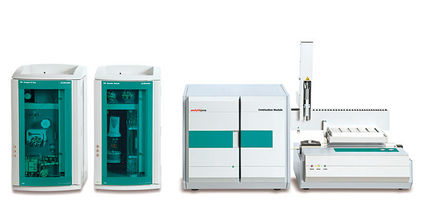To use all functions of this page, please activate cookies in your browser.
my.chemeurope.com
With an accout for my.chemeurope.com you can always see everything at a glance – and you can configure your own website and individual newsletter.
- My watch list
- My saved searches
- My saved topics
- My newsletter
DynepoDynepo is a form of pharmaceutical erythropoietin (EPO) under development as a pharmaceutical product by Shire Pharmaceuticals. The first development steps were performed by HMR and Aventis. Aventis obtained the license in Europe in 2002. The company expects to launch the product in Europe in 2006, although patents held by the American biotechnology company Amgen, Inc. may preclude its sale in the United States. Product highlightEPO is a natural human hormone that stimulates formation of red blood cells. Pharmaceutical EPO, made via recombinant DNA technology is used to treat anemia, but it has also been used by doping athletes to improve their aerobic performance and stamina. Unlike existing forms of pharmaceutical EPO manufactured in cultured animal cells, Dynepo is to be made in cultured human cells. It is therefore expected to have an authentic human form of sialic acid and other oligosaccharide residues. This characteristic may make it a longer-acting product than existing brands, but clinical data have not yet been made public. It should also make Dynepo undetectable in the existing urine test for EPO used to detect doping by athletes. However, on September 28, 2007, the French sports newspaper L'Equipe reported that the French anti-doping laboratory LNDD had detected Dynepo in the urine of Michael Rasmussen during the 2007 Tour de France. Rasmussen was sacked by his own team while leading the Tour, because of irregularities in his reporting of his whereabouts during the lead-up to the tour. The story also remarked that Dynepo was found in the urine of several other riders, yet criteria for a positive test for Dynepo are not defined. |
| This article is licensed under the GNU Free Documentation License. It uses material from the Wikipedia article "Dynepo". A list of authors is available in Wikipedia. |







